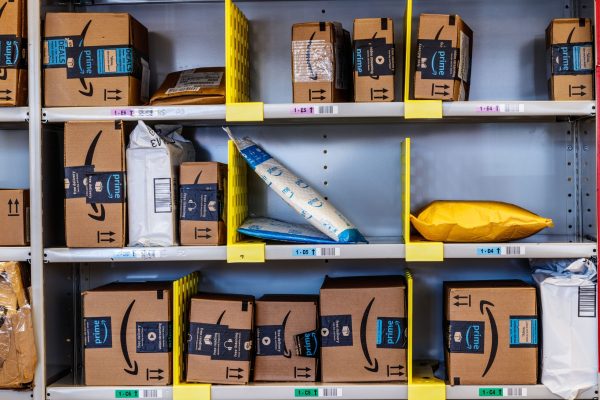The rise and rise of ecommerce sales has left authorities playing legislative catch up, as the sheer volume of parcels being shipped around the world every day has overwhelmed existing VAT and import systems.
To recoup lost tax revenue and facilitate the continued growth of ecommerce, from January 2021 the EU is overhauling how VAT, customs and import tax is handled across the region.
What is IOSS?
The Import One-Stop Shop, or IOSS, is an electronic portal that enables ecommerce retailers to collect VAT at the point of sale. It’s being introduced by EU governments to simplify VAT payment for retailers and distance sellers, whilst also supporting a wider EU initiative to clamp down on import tax evasion and fraud.
The IOSS represents an easier way for ecommerce retailers to navigate foreign countries’ complex tax laws. By centralising the declaration and payment of VAT for distance sales of imported goods (valued at €150 or less), VAT payment becomes faster and simpler, while the consumer is only charged once at the time of purchase.
IOSS also levels the ecommerce playing field. Until now, both EU and non-EU sellers could ship goods directly to EU customers without paying any VAT if the consignment was valued at €22 or less. This low-consignment VAT exemption saved customs officials the hassle of checking parcels’ contents were accurately declared, but many EU-based ecommerce retailers found themselves at a disadvantage; paying VAT on goods dispatched within the EU while other sellers did not.
How will the IOSS impact logistics services?
While the new EU VAT and customs laws are aimed at B2C ecommerce shipments, logistics services will experience some changes – particularly as IOSS registration is not compulsory.
The responsibility for collecting VAT at checkout lies with the retailer or marketplace. In the event that VAT is not paid at the point of sale, logistics services and last-mile delivery may bear the brunt of the customer response when they are charged additional Delivery Duties Unpaid (DDU) and handling fees upon receipt of their goods.
If the additional charges are not clearly explained to consumers, there is a potential for the logistics service to receive negative feedback or even delivery refusals, costing the provider time and money to resolve and impacting the business’ reputation.
Overall, however, the introduction of the IOSS will create long-term efficiencies across the supply chain, most notably for logistics companies by hastening the release of goods from customs as shipments will simply be checked for a valid IOSS number before being dispatched, rather than waiting for VAT to clear.
As the IOSS also removes administrative obstacles for ecommerce retailers and enables them to sell to the whole of the EU with ease, the new system also enables logistics services to broaden their offering and explore new markets in the EU.
What do logistics operators need to do to prepare for IOSS?
Communication is key to the seamless implementation of IOSS for logistics services. Customers should be informed about any potential disruption or additional fees well in advance to minimise any potential negative impact on the logistics operator. Conversations with ecommerce retailers and key stakeholders should clarify how established logistics chains will handle the new regulations.
Logistics services must also ensure they have adequate warehouse space and capacity to handle a continued increase in orders, as the EU’s VAT and customs regulations reforms are designed to facilitate easier, smoother ecommerce for consumers. COVID-19 and global lockdowns already sparked a surge in demand for logistics services as ecommerce sales rose dramatically; delivery companies need to anticipate an increased volume of packages and greater pressure on processing facilities.
Talk to Sprint Logistics
The changes to EU laws are complex and far-reaching; as well as the introduction of IOSS, there are new regulations relating to Brexit and customs declarations that will impact logistics around the world.
Sprint Logistics is a global logistics company providing worldwide fulfilment services, distribution, storage, mass mailing, supply chain management and more. With a distribution network covering over 200 counties, we’re well placed to support your business as you prepare for the new rules.
If you have any questions about the impact of IOSS on logistics, ecommerce or last-mile delivery, or would like to find out more about our logistics services, don’t hesitate to get in touch.




